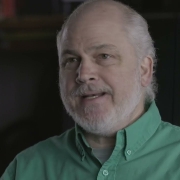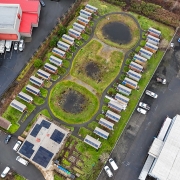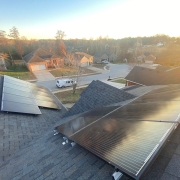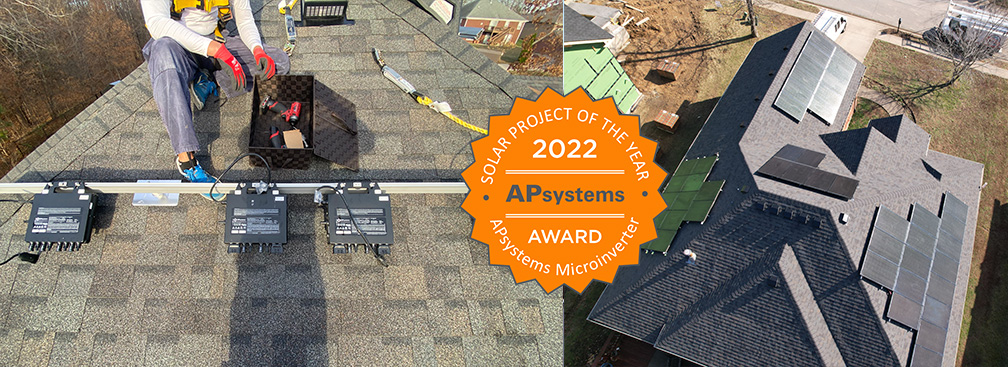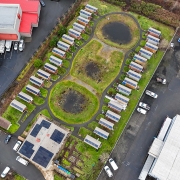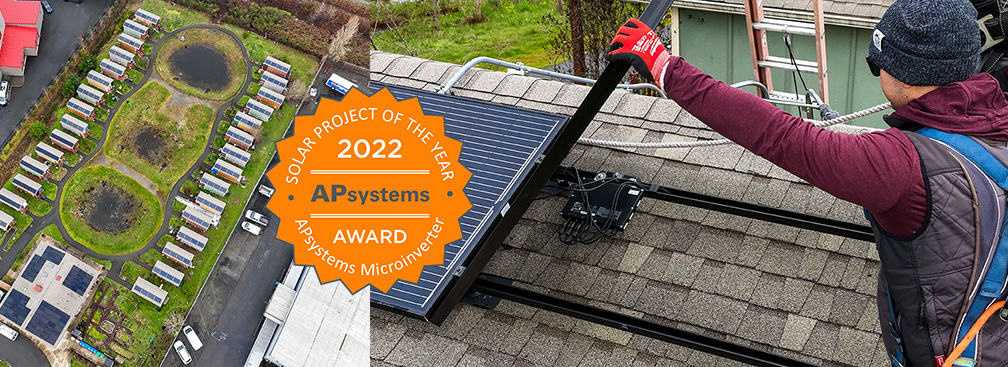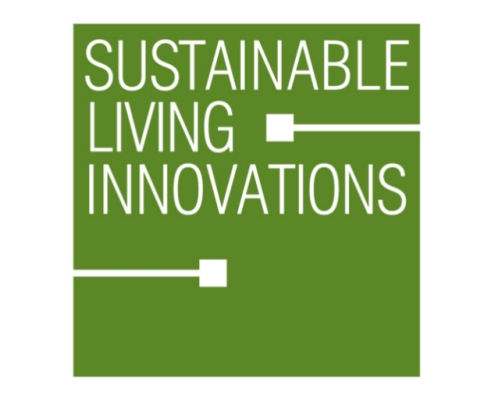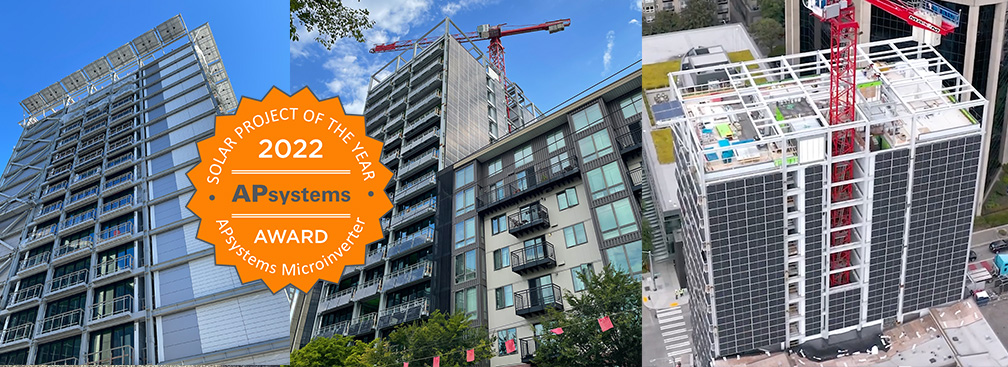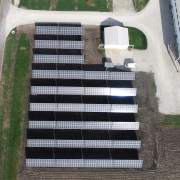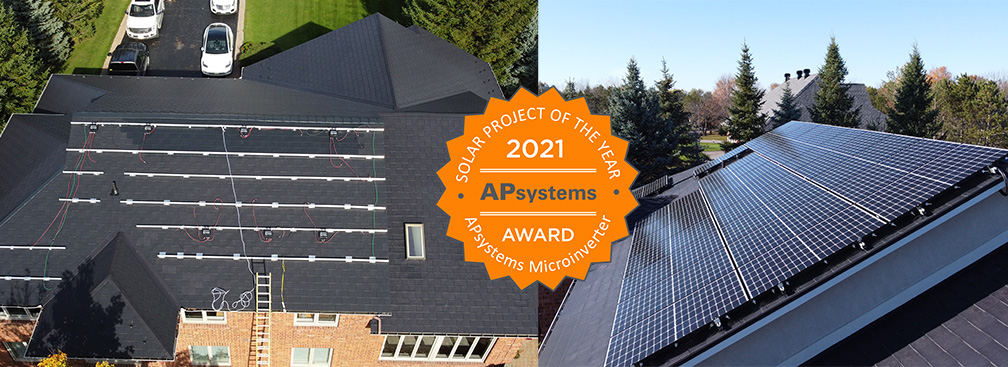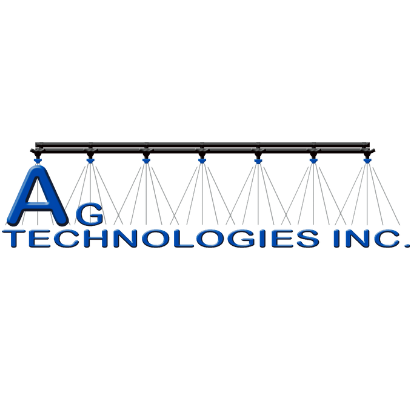 APsystems had many worthy commercial entries for this year’s installation awards. But we must say that the winning project’s narrative is particularly complex and exciting. The elements of it are agriculture, North American-built panels, installer-designed proprietary and newly-patented components, and a substantial contingent of APsystems’ YC1000 inverters…all joined under the aegis of solar power.
APsystems had many worthy commercial entries for this year’s installation awards. But we must say that the winning project’s narrative is particularly complex and exciting. The elements of it are agriculture, North American-built panels, installer-designed proprietary and newly-patented components, and a substantial contingent of APsystems’ YC1000 inverters…all joined under the aegis of solar power.
The firm that took on the project, A.G. Technologies, is a beacon in the Illinois solar industry. Its guiding spirit, Jim Straeter, is familiar enough with the ecological and financial benefits of ‘following the sun’ to adopt it as a secular gospel. And its company sensibility is entirely in-house, with no subcontracting of project elements.
A.G. Technologies’ incorporation of micro-inverter units in their installations, and their use of North American-made panels, makes them both a premium installer and a profoundly meaningful influence in the field. The company that contracted the array, Beck’s Superior Hybrids, was familiar with A.G. Technologies before work began; the company already had three large systems up and running courtesy of A.G. when the El Paso site work launched. Like other forward-thinking companies, Beck’s is fully on board with the substantial economic and environmental rewards of using solar power for commercial operations.
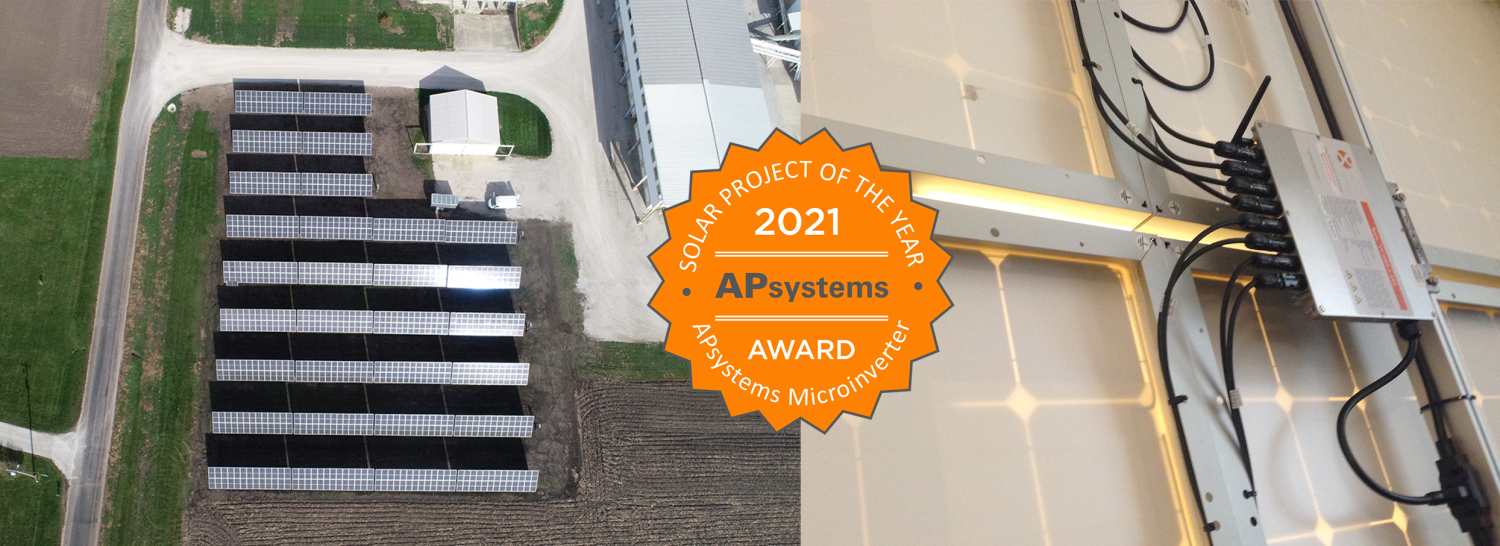
The YC1000 inverters were tailor made for the A.G. Technologies El Paso project. Due to the unusually stout power capabilities of the unit, the A.G. team was able to conduct the installation without the use of transformers and connect directly to the grid; quoting Straeter, “Microinverters in general make designing a project easy and the per-panel reporting makes post-install maintenance much less costly, and improves up-time of the project.” Additionally, the YC1000’s 480v design keeps wire size costs manageable, resulting in considerable savings.
In the end, the Beck’s Superior Hybrids El Paso location employed 30 arrays with 26 Hanwha Q Cell 430w Duo panels, each array using 9 APsystems YC1000 inverters. And a special shout-out to A.G. and their proprietary designs, which were used to facilitate the project and improve performance: the patented Solarcam™ stand that supports each panel, and the side-mount trencher that makes installation safer, faster and cheaper.
We give three cheers to A.G. Technologies and Jim Straeter for their generosity of spirit, their gift for invention in creating the right tool, their advocacy for solar power as a direct competitor of utility-based power, and their remarkable innovation.
Learn more about other 2021 project winners here.

